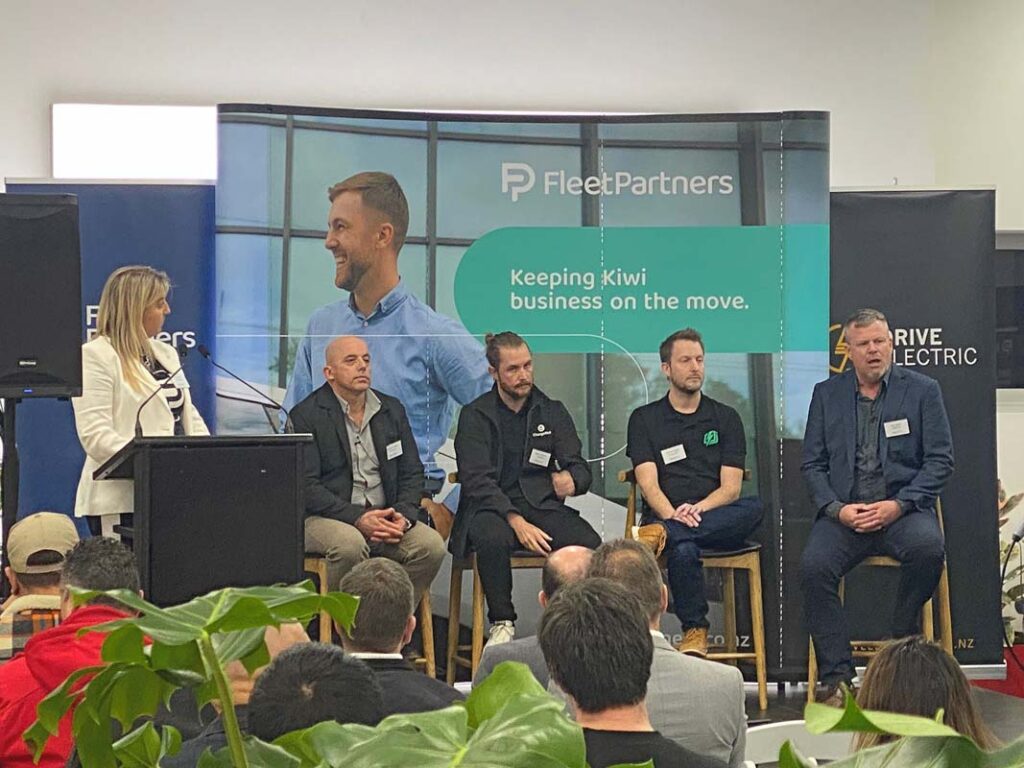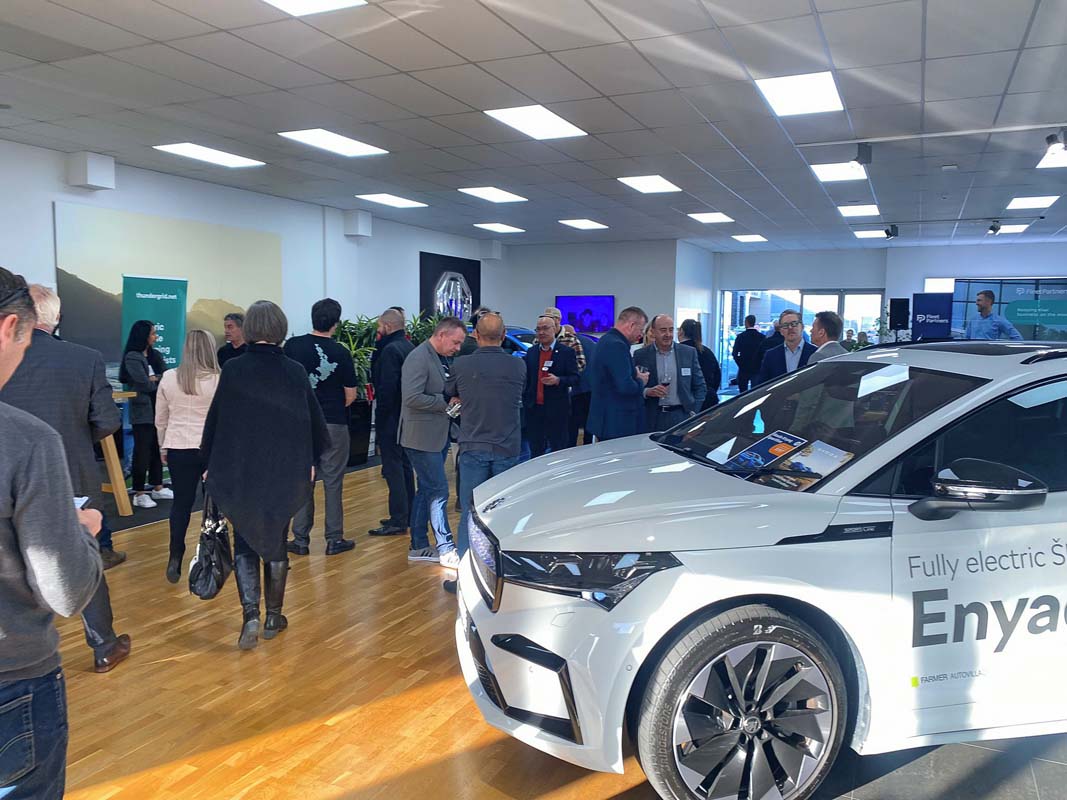In August Farmer Autovillage hosted a FleetPartners EV showcase event – the Journey to Carbon Zero.
The event, organised by FleetPartners and Drive Electric, and held at Farmer Autovillage’s MG showroom, updated attendees on developments in the EV and PHEV markets, both in New Zealand and internationally.
Drive Electric board member Dean Sheed spoke to the approximately 100 guests about emerging trends and changes in attitude and consumer opinion in relation to electric vehicles in 2023. In particular he contrasted the enormous growth in EV sales to the corresponding downturn in demand and sales of internal combustion engine (ICE) vehicles.
He touched on the issue of changing perceptions around the practicality of investment in electric vehicles in the last 12 months, and suggested future considerations for the road ahead.
FleetPartners Director Dennis Kelly then addressed the audience looking particularly at trends in corporate investment in fleet vehicles.

Dennis suggested although there are significant aspects of fleet EV investment that are front of mind for business operators now, there are also emerging new considerations that need to be ‘factored in’ by decision makers in the future.
Both speakers hinted that the perennial EV issues of driver range anxiety and purchase price parity are now far less prohibitive than in previous years through a combination of technology development and car manufacturers’ market responsiveness.
Both issues have also been addressed to an extent by clean car subsidies and growth in the national charging network.
Progress in the growth of charging networks throughout the country is also having a positive impact on the peace-of-mind for the increasing numbers of EV drivers in New Zealand.
A topic both speakers identified as key to the smooth and successful transition of vehicle fleets to electric is organisations’ strategies for charging.
As more electric vehicles come onto the market, the appropriateness of the various models for their intended purposes needs to be carefully weighed up.
In particular the requirements for pool vehicles, delivery vehicles, stay at base and those taken home by employees will each have unique charging profiles.
These were explored in depth by an EV charging discussion panel made up of EV charging experts on the evening, namely ChargeNet, Thundergrid, JetCharge and Evnex.
New employment, ownership and safety issues have begun to emerge recently as employers and employees develop policies for charging of business vehicles at employees’ homes overnight.
Consideration must also be given to provision of the most efficient charging facilities at the place of work, as well as via public charging networks.
In addition to safety and efficiency, the panel explored employee reimbursement for electricity charging costs at home, the treatment of costs for installing appropriate home charging equipment, ownership and moving costs, and charging equipment options.
One clear message emerging on the night: If you are investing in electric, plan the change early and get expert advice about what charging equipment and installation will be required.
There may need to be significant investment and installation can take time, so do your research early.












